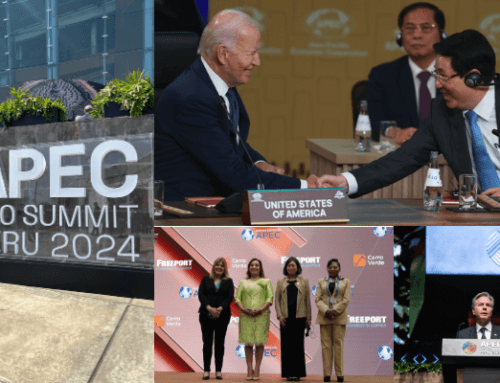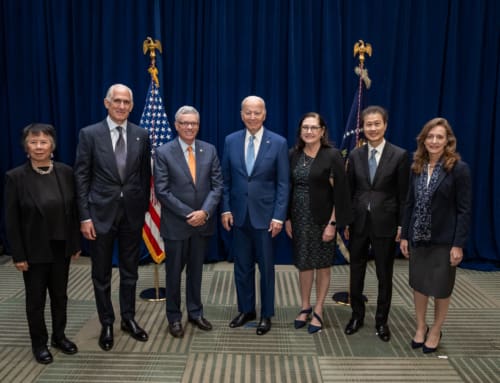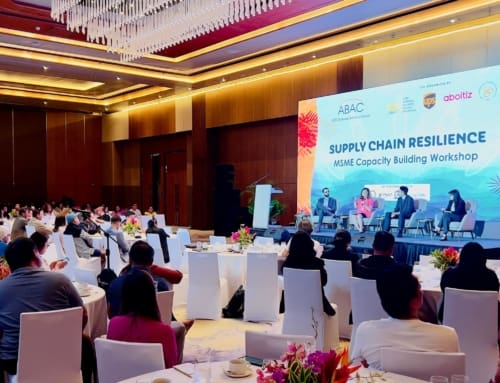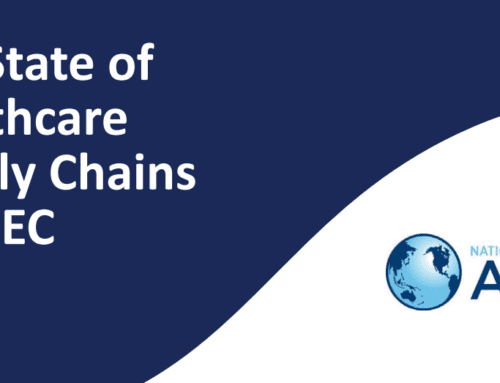The recent GeekWire Summit in Seattle focused on the important role that dialogue between business and government plays in setting the right regulations for emerging technologies. NCAPEC policy staff joined the Summit, which featured discussions with senior executives from leading tech companies like Microsoft and Amazon. GeekWire, the conference organizer and Seattle-headquartered tech news site, was founded on the principle that innovation happening in Seattle has global implications. As evidence, many of the key issues raised during the Summit are reflected in the APEC agenda, including international cooperation in the areas of human capital development, data privacy, cybersecurity, and more.
In his keynote address, Microsoft President Brad Smith noted that over the next three decades, AI will have a stronger impact on the global economy than any other technology. Smith also stressed the importance of cooperation between government and the private sector and argued that “We need to do for data what open source did for code.” Later Amazon Senior Vice President Jay Carney emphasized the need for balanced decision-making and close cooperation between policy makers and business in addressing the impacts of the emergence of AI.
Government representatives featured in the Summit included Congresswoman Pramila Jayapal (WA-07) and Seattle Police Department Chief Carmen Best who highlighted how technology is transforming law enforcement in the greater Seattle area. While recognizing the benefits of new technology developed by the private sector, both officials cautioned that business and government need to respect people’s privacy and ensure against potential bias. The utilization of new technology to support law enforcement was recently raised in the APEC Intellectual Property Rights Working Group, as member economies discussed how AI can help detect fraud more quickly and accurately.
In response to the growing need for public-private sector cooperation in addressing emerging technologies, APEC’s Business Advisory Council (ABAC) formed the Digital Innovation Working Group while APEC’s government officials established the Digital Economy Steering Group. Together, these groups provide a platform for member economies to discuss developments related to emerging technologies and share best practices for ensuring that they have a net positive outcome on economies.
To address growing concerns with privacy, APEC Leaders endorsed the APEC Cross-Border Privacy Rules (CBPR) System in 2011. This voluntary, accountability-based system was developed with input from industry and civil society with the aim of building greater trust in cross-border data flows. The public and private sector continue to engage on privacy issues through the APEC Data Privacy Sub-group, which also addresses interoperability with other international frameworks.
As technology brings about new challenges and opportunities for economies, APEC allows for the frequent and timely exchange of best practices between the public and private sector. In doing so, the forum supports the process of building international norms and wide-ranging consensus that are critical for developing policies which facilitate economic growth and promote the uptake of new technologies. The remarks from business and government leaders at the GeekWire Summit were evidence of the critical nature of the work APEC is undertaking.







